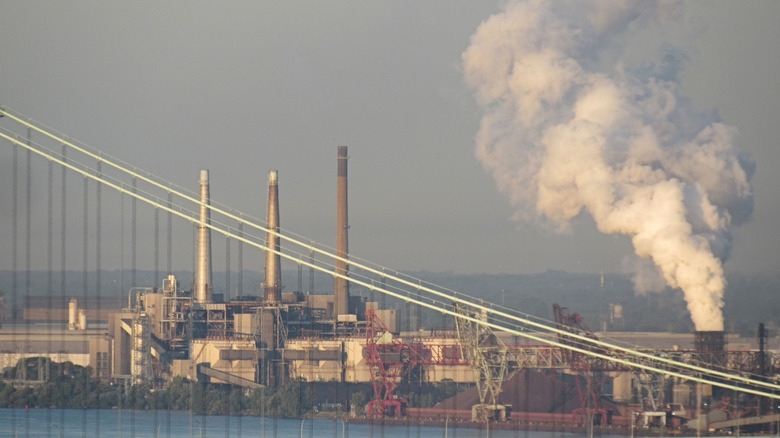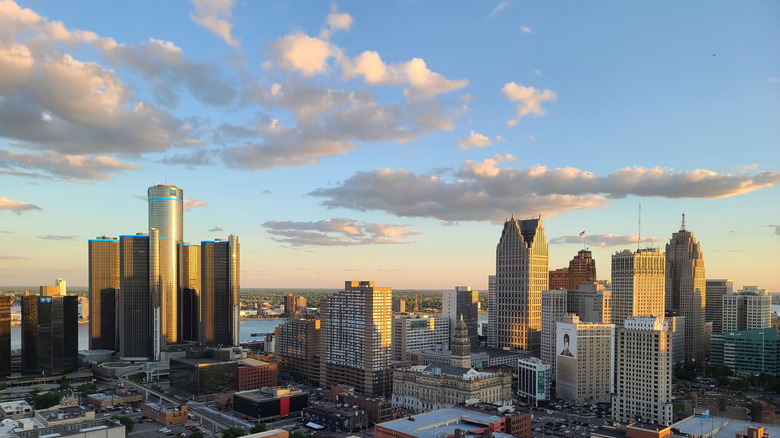The Midwest City That Ranks As America's Second Dirtiest (And It's Not Chicago)
There are many advantages that come with living the city life, from access to robust public transportation like New York City's subway system to fantastic children's museums where you can spend an afternoon with your family. Unfortunately, they can also be dirty. According to the National Institute of Environmental Health Sciences, around 90% of people living in cities are impacted by poor air quality.
Chicago may have some of the worst air pollution in the United States, but according to a new study by LawnStarter, which ranked hundreds of US cities on a range of different categories like air and water quality, greenhouse gases, sanitation, and how clean the people who actually live in these cities find them, The Windy City doesn't even crack the top 25 dirtiest. One Midwestern city did rank in the top five, however: Detroit, Michigan.
Coming in at number two, ten places above its neighbor Flint, Michigan, Detroit owes its low score primarily to the number of homes there that don't have complete functioning kitchens or plumbing. As noted by the LawnStarter study, nearly 80% of people from Detroit surveyed consider it dirtier than they would like. As massive as that statistic may be, it can't compare to the number one dirtiest city in the U.S.: San Bernardino, California. In San Bernardino, almost 94% of residents considered the city too dirty.
Why did Detroit rank so high on the list?
From Detroit's affordability to its thriving art scene, there are a lot of things to love about this city, but it's clear why it ranks so high in this particular study. LawnStarter used a variety of factors in determining its rankings, including population density, average air quality, water quality violation, resident satisfaction, the amount of the population that smokes cigarettes, issues with living conditions for its citizens, and infrastructure problems. While some of these issues may be more significant than others, according to research from Michigan Public Health, while closing down coal-burning power plants in the city has improved air quality, parts of Detroit have a major problem with exhaust from vehicles.
Another significant factor that contributed to Detroit's ranking was the fact that more than 15% of homes don't have a functioning kitchen, and more than 12% are without complete plumbing. Plumbing poverty, or not having access to running water, is a serious problem for many families in the United States, and not having running water at home is a consistent problem for many Detroit residents who have to find other ways to cook and keep their homes clean. Unfortunately for its residents, in 2014, the city notoriously started shutting off water to homes and shows no signs of stopping anytime soon, even as the cost of water continues to rise.

